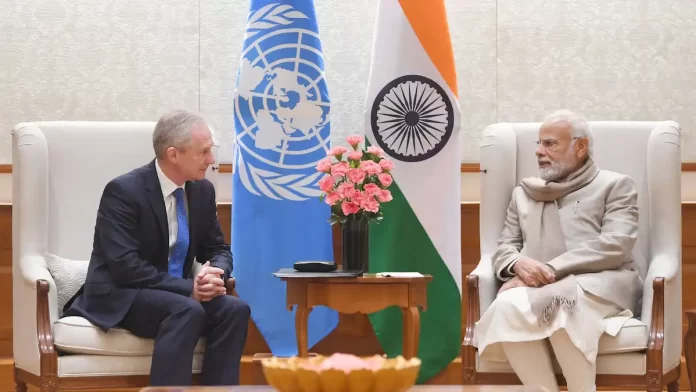In a significant development, India on Wednesday voted in favour of a Pakistan sponsored UNHRC resolution condemning the recent “public and premeditated” acts of desecration of the Koran in Europe, reported the Hindu.
The resolution, titled “Countering religious hatred constituting incitement to discrimination, hostility or violence,” strongly condemns recent acts of desecration of the Holy Koran.
With a majority of votes in favor, this resolution sends a powerful message against religious intolerance and emphasizes the need to hold perpetrators accountable under international human rights law.
The 47-member United Nations Human Rights Council, headquartered in Geneva, adopted the draft resolution with a significant majority.
Out of the 47 member states, 28 voted in favor, seven abstained, and 12 nations voted against the resolution.
This outcome highlights the global concern and recognition of the importance of countering religious hatred and protecting religious freedoms.
India took a firm stance in support of the draft resolution, aligning itself with nations that share a commitment to safeguarding religious sentiments.
By voting in favor, India joins countries like Bangladesh, China, Cuba, Malaysia, the Maldives, Pakistan, Qatar, Ukraine, and the UAE, in expressing strong condemnation of the recent acts of desecration of the Holy Koran.
The adopted resolution specifically underscores the obligation of states to hold accountable those responsible for acts of religious hatred.
It highlights the importance of international human rights law in addressing such acts and seeks to ensure that perpetrators are brought to justice.
While the draft resolution received overwhelming support, it also faced opposition from certain nations.
Belgium, Finland, France, Germany, the United Kingdom, and the United States were among the countries that voted against the resolution.
Their dissenting votes reflect a diversity of perspectives on the appropriate approach to combating religious hatred.
However, the adoption of the resolution signifies the majority opinion that the desecration of any religious text is unacceptable and warrants condemnation.
The draft resolution was brought forward by Pakistan on behalf of the States Members of the United Nations that are members of the Organisation of Islamic Cooperation (OIC) and the State of Palestine.
By initiating this resolution, these nations sought to address and denounce the recent acts of desecration, emphasizing the need for international solidarity in countering religious hatred.
India’s vote in favor of the UN Human Rights Council’s resolution condemning the desecration of the Holy Koran reinforces its commitment to promoting religious harmony and tolerance.
By standing with other nations in recognizing the importance of holding perpetrators accountable for acts of religious hatred, India sends a strong message against intolerance and emphasizes the significance of international human rights law.
This collective effort towards countering religious hatred serves as a reminder that respecting and protecting the religious sentiments of all communities is essential for fostering a harmonious and inclusive global society.
